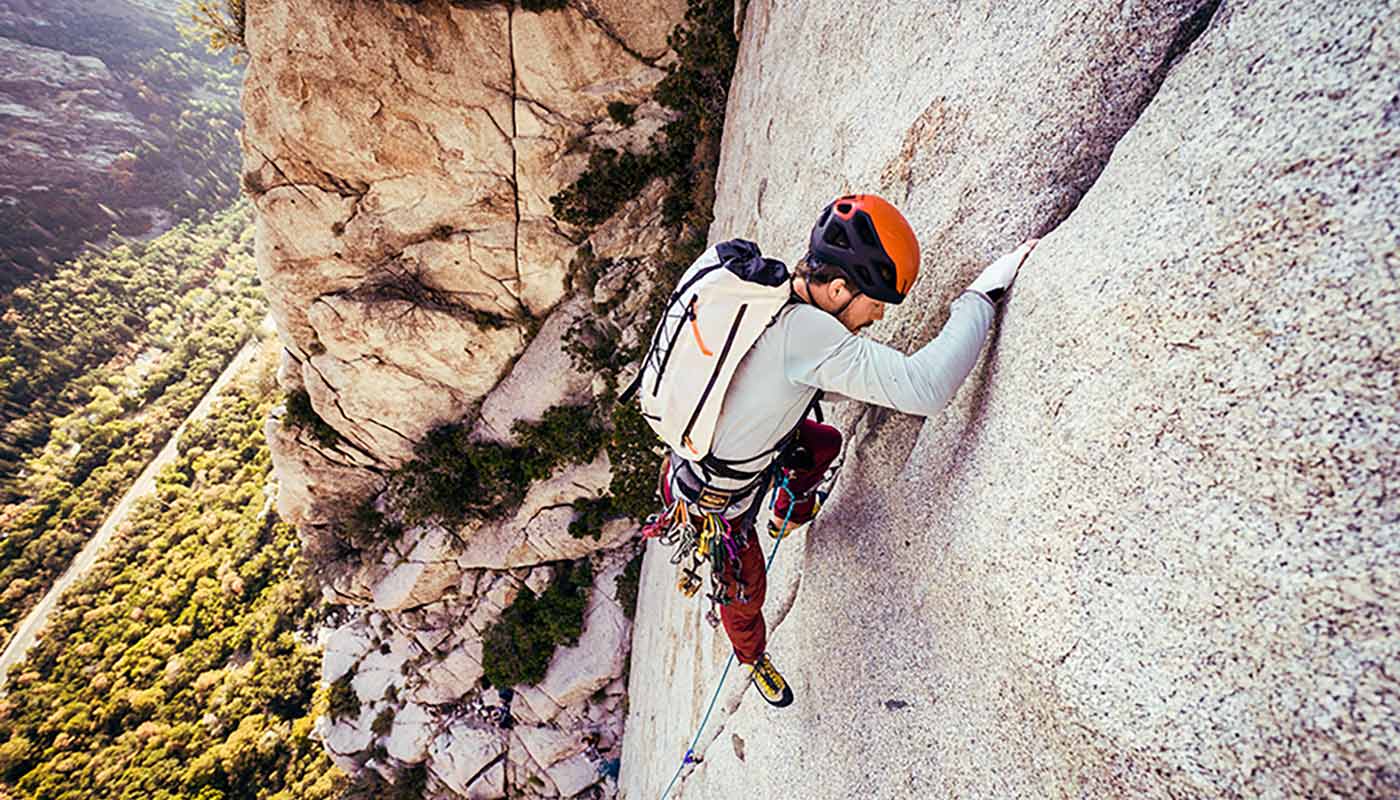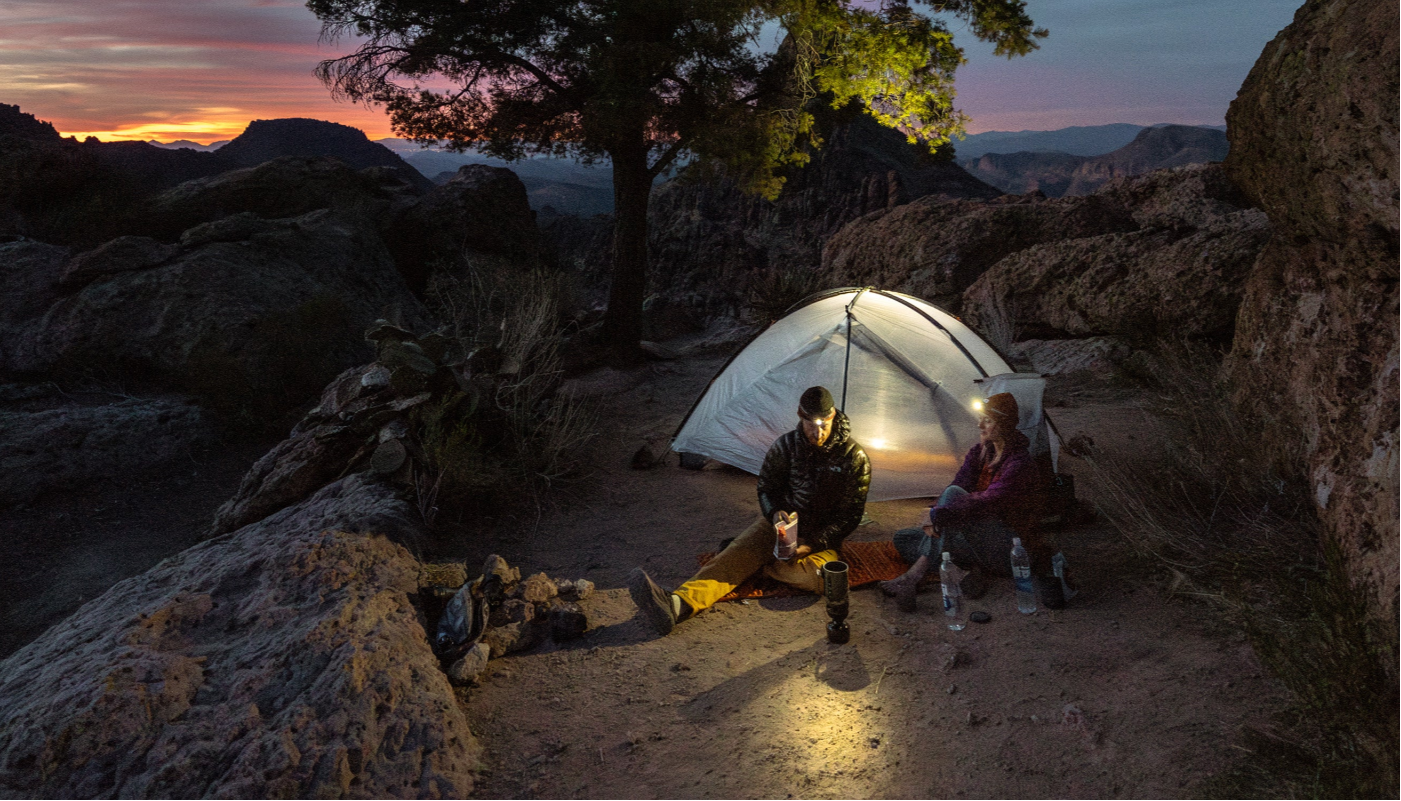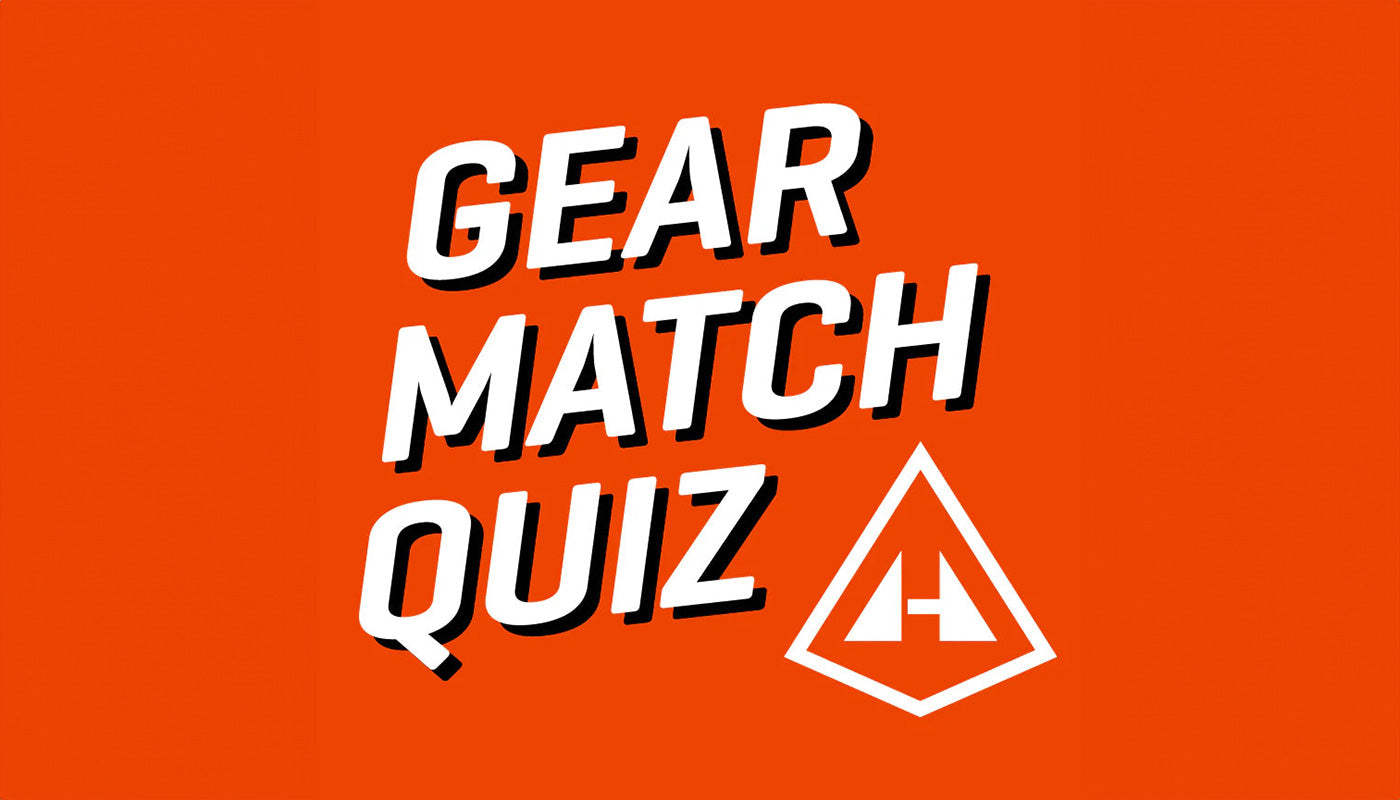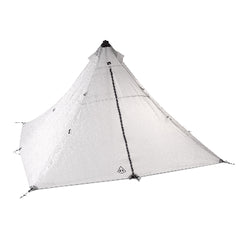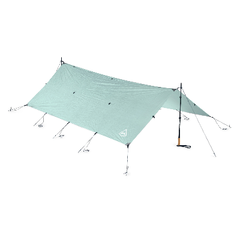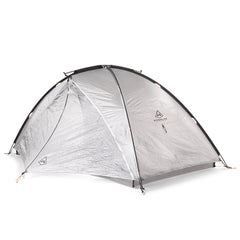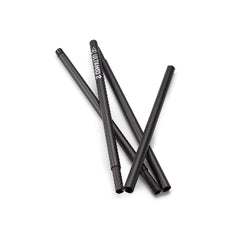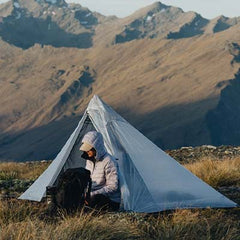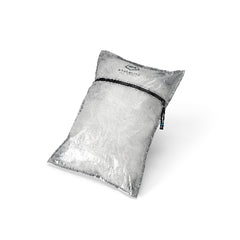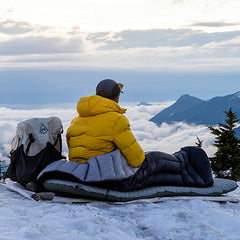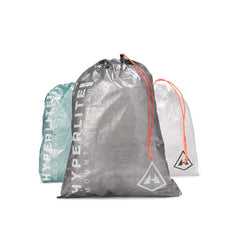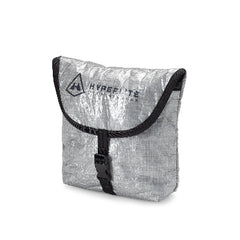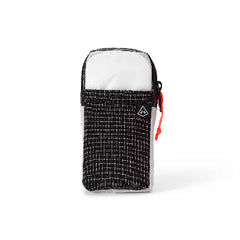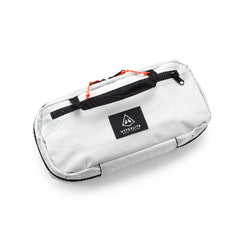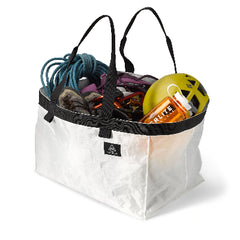Words & Photos by Garrett Martin
Disclaimer: I am not a psychologist, and everything in the following article is anecdotal and from my own experiences and opinions. There are many other articles and resources on Post-Trail Depression, and if you feel like I might have missed something or undervalued some aspect of life post-trail, I will encourage you to read others as you navigate your understanding and unpacking of your own thru hike or outdoor adventure experience. If you feel that you need to see a professional due to pre-existing depression or you're noticing that you're still not getting over the funk, this article will not fix that, and please get the help you need. Some of the tips in this involve having resources (money) not everyone might have after trail, but please don't let not having them discourage you from embracing the tips you can achieve.
So, let us begin this journey after the journey and acknowledge that our time on trail is one of limitless possibilities and potential. We're able to daydream about all the things we want to do and believe we can and could do–without having to understand the labor or effort that goes into them. When we get off-trail with chronic fatigue and physical pain, it makes moving harder. Brain fog impairs our cognitive functions. Ever-present modern-day technology distracts us. And it's easy to get discouraged when we realize how much time and effort is required even to accomplish one thing on our wish lists. The learning curve of acquiring a new skill or endeavor is always underestimated by the inexperienced. Please have patience with yourself during this time.
Off-trail people are too loud, and spaces are too crowded, even with my own family. There are ambient noises outside of our control like the A/C running, footsteps across a creaky floor as they place a dish into a sink with a loud crash. All normal things, but still overwhelming and unusual to our previous lives under polyester reflected moonlight.
This article was written in a mix of family spaces where the people I love are still too much; too helpful, too insistent that we ditch our fanny packs, too conversational, and too loud (I love my sister-in-law but the way she and my wife communicate is "so extra" – their words, not mine.)
People want to help us get comfortable and taken care of, but they don't understand that we're comfortable where we're at. It can be frustrating. Maybe we like our trail clothes the best; I mean, I definitely do. I wore them for five months straight! Since recently finishing the Pacific Crest Trail, my aunt kept offering my wife and trail copilot, Honeybear!, new clothes, and offering me my cousin Alex's, and although we really appreciated the hospitality, the reality is I'd been to four or more retail stores and either didn't find what I wanted, found stuff I might want but didn't want to pay the price for or a combination of the two that were things I didn't want to wear and didn't want to pay for. I am still wearing the shorts I finished trail with as well as the same socks and shoes. Luckily, I was able to get a new shirt as I traded in the one we finished with (Thanks Patagonia.) But still the same style. It's not for not wanting or not trying–I've tried, as I stated before. I am extremely fortunate to have and grateful for this helpfulness, but it's not what we need, and there was no way for my poor aunt to know that.
I have been feeling overwhelmed by normal societal expectations like holding conversations and answering questions about the experience. Luckily the vlogs were informant enough to not get bombarded while we stare at our feet or the floor, not knowing where to start or end–just like we experienced after we finished the Appalachian Trail.
To be honest, we've been more inquisitive about everyone else's life while we were gone, partly as a defense mechanism because we haven't fully processed the journey ourselves and partly because I really don't feel very connected to the trail currently. It's as if our pre-trail, on-trail, and post-trail journey were three segments of a string, and the two ends of pre-and post-trail merged, folding in and disappearing the on-trail portion. I am back in my same vehicle, driving the same roads, having the same fast-food options that don't appetize but are inevitable on a long drive home. I don't look any different, really, other than my pudgy gut is gone, and I wear my fanny pack in public (my wallet is somewhere in storage).

The normal people shopping have no idea what we've just done; they don't care, and why should they when they have mouths to feed and appointments to make. They wouldn't get it even if we took the time explain. The number of eyes that we've seen glaze over when we talk about our absence could keep an optometrist busy for a few years. It's not that I expect them to care; it's just a little awkward when I don't know how to answer people at parties as to what we do (currently unemployed) or where we live (wherever our friends and family are able to house us). Where to even begin? Do I just blatantly say we spent five months hiking on the West Coast and attempt not coming off as a d-bag while I say it? Do I ease into it and tell them we're moving from Fort Worth, we don't have jobs, and then try to unpack the in-between from there? I guess that answer will show itself in time.

Currently, I would say I am experiencing more anxiety and mania than depression, but mainly because things are so busy right now with the prospect of buying a new house, getting settled into jobs, having to buy Honeybear! a car, moving to a new city and feeling displaced in the meantime as we move from guest room to guest room visiting our families and friends. In one place just long enough to develop a breakfast routine and then off to the next. I'm pitching more creative projects and pursuing a potential career path change. We're in transit and sitting a lot and perusing social media and seeing people still out there or starting new trails is giving me insane FOMO. To say I've been able to sleep through the night since we got off trail (not that we even did that often on trail) would be a lie.
I've been angry and irritable. I am still an angsty punk at heart and have carried a very sincere "F U" attitude towards any system of authority and rulemaking. Social slights and inconsiderate people have annoyed me more than usual. I am in a constant panic attack, it seems, with all the different moving parts of normal society. While in my truck, I constantly worry now about other drivers or road factors. Every minute I'm adapting and performing Star Wars quality evasive maneuvers. I am a Blue Angel of the concrete world's highways and by-ways. This has been exhausting, enraging, and, unfortunately, efficient. Good luck navigating the Lone Star State without a vehicle.
I am such a mass of neurosis I tend to overextend myself and try to conquer the world in one fell swoop. It's easy to get caught up in the constant productivity that mania brings about. Out on trail, the in-between times are filled with engagement within my cohorts or the landscape, present-ness, and simple pleasures like a dark chocolate and almond granola bar. In the sit and wait pace of the real world, the in-between times have been filled with trying to generate more purpose, more projects, more goals, more and more and more and more. I am in a life raft throwing bait on lines into the ocean, and instead of waiting for the fish to bite, I keep throwing out new lines. Eventually, the fish will bite, and my life raft will be sunk by the weight of my catch. It is a problem I've had since I tried to overdo the Valentine's Day boxes we made in second grade. An incredible concept with an underwhelming execution because I couldn't just KISS it.
Keep It Simple Stupid.

Our PCT ending was a bit anticlimactic for us as well, leaving a bit to be desired. There was no Canada entry this year, and although on the 30 miles back to Hart's Pass it was nice to see friends that were a day behind us, it robbed the ending a bit. Especially when compared to our Katahdin summit to finish off our Appalachian Trail thru-hike in 2018. It was negative one degree and took all of our being and support from the friends and day hikers assisting us in the expedition to discover the white blazes lost amongst the snow-covered boulders on the way up. It was like blizzard conditions inside of a ping-pong ball. I hid behind a rock to protect myself from the wind as I ate my celebration meal I'd walked 2,200 miles of rugged American East to partake in–a 10-piece chicken nugget meal from McDonald's that we purchased the night before.

Our northern terminus day in the PCT was beautiful weather, and instead of an incredible climb, it was actually a mediocre downhill and a comfortable temperature to sit and rest. And maybe the ending was also lackluster because of the beer that burst on a tent stake as I took it out of my backpack. It was around 10 am about 20 miles from the Canadian border. It was to be my one last hurrah before I took extended time off drinking to stay focused on all that would be asked of us in normal life. I was forced to pound an 8.8% double IPA before brunch. I suppose I felt a bit shorted in that moment and woozy on the ridgeline as we headed out.
Honeybear! and I have been telling each other it was too easy; we weren't broken enough like we were after the AT. We still had energy and enough mental capacity to want to stay moving after the adventure was done. It didn't take enough of us to push through it all and come out the other end. The proverbial dragon had been slain, and we were now in the shadows of the lore around it instead of living in its den.

Because of this availability of energy, we've been hitting the ground at full speed, navigating a world in which any wrong move in our land ship could result in injury, death, or the worst of all, debt. Hundreds of other people's mistakes around us that could result in a life-altering accident. On trail, it was our own fault; aside from wildlife or a misdirected step on a ridge, the existence is very mellow, and you're only accountable to yourself and the task at hand. There are no taxes out there, no 401k or retirement to consider, no concern for benefits, and what school district our future children would best thrive in. No competition or material shortages to worry about. Capital is meaningless when you have a full resupply and 110 miles of no car access between you and the next town stop.
In town, it is obviously relevant as you participate in a system established before even your grandparents were born. However, in those miles between the streetlights, it's just you and your ability to adapt and exist in whatever weather comes your way. There were many times when people would talk about the upcoming weather while in town, and my response was always, "I don't look at the weather because I have layers for whatever develops, and I have to exist in it anyway, so why worry?" Now slick roads and wet clothes have a whole new meaning and risk.
I have friends that are still out there taking trips, and on the move, on the one hand, I am envious, but on the other, I know their time will come when they have to return to normal life, and I know how it will hit them when they finally stop moving and settle in because I am going through it now.

I'm realizing the very real need to re-implement meditation in my daily routine to help slow myself and my thoughts down. There are an incredible number of directions to go, and just like out on trail, we are course-correcting people. Each new move and piece of information steers the ship accordingly. Another obvious step to take post-trail is reducing the amount of social media I consume. On our last day on trail, our good friends Caution and Hazard (I love cute matching trail names)–another married couple we met while on the PCT–talked to us about the concept of digital minimalism and reducing the amount of mindless consumption we have with technology.
At the time, I understood what that meant intellectually but thought it absurd as our lifestyle involved so much time outside of the reach of cell phone towers or service. Now that I'm back to my own devices (no pun intended), I'm falling back into the same habits of needing that constant dopamine fix. Out on the trail was the expansion of landscape and a seemingly endless ridgeline to stare off into. Now I'm putting pauses on push notifications on Instagram. While I'm indoors and connected in a digital way to everyone I wish to be, there are too many things to get caught up on (Like Bo Burnham's "Inside." Wow!) We went for a walk at a watershed preserve near Seattle after trail, and in that short two-mile tromp, just the three dings I got from messages was irritating and annoying. While inside and arms-length from my phone, however, three dings are not enough. I need more dings and buzzes and beeps. More tactile aspects of someone wanting my attention and giving me theirs via cyberspace, all while some blurred vision and the faint hum of whatever the TV is showing plays on top of that orchestral ruckus of restlessness.
Making a conscious effort to get outside and exercise seems simple, but the south is currently flat, hot, and humid. We are currently visiting my wonderful and helpful in-laws in Louisiana, where they have experienced heavy rainfall over the summer, and the mosquitoes have been relentless. Conditions we haven't had to experience since the Yosemite portion of the Sierras back in July. It has been a bit of a deterrent. The prospect of boring landscape and real elements of discomfort with no payoff in adventure seems daunting. I am an active identifying person who is currently in-active. I carried this same mindset post AT, which resulted in some nice love handles and stomach rolls that kissed each other while sitting on a long commute home.
Something as simple as having to go to the bathroom is easily achieved at any time on trail, while in the real world, you can't just go anywhere in public, and finding a bathroom in some places can prove challenging. Today we went to a park with some friends after lunch, and for whatever reason, my sno-cone didn't agree with my stomach. The park had no public bathroom, so I had to sit in the discomfort of contorting bowels while feigning engagement in the conversation. On trail, it would be as easy as finding a good place to dig a hole, going, then moving on with the day. A lot changes in the concrete jungle.

It can be overwhelming, irritating, isolating, unforgiving, a cause of feeling incompetent, dumb, and every other negative view one can have of themselves. It will last for at least six months to a year post-trail, I'm sure of it. That's what happened after the Appalachian Trail, and although I'm more experienced now than I was then, I know there are always new things to manifest within the Devil's Idle hands.
So how do we fight this? How do we fit in? How do we regain that connection of the fullest potential and enjoyment we had out on trail? I've read before that there is a perception that people aren't themselves out on trail. They're kinder and nicer, more thoughtful, and more communal. I personally don't believe in that and know whatever or whoever it was that you were out there, it was always in you, and you just need to understand how to set up your life around you to bring out those qualities.
I'm who I was before I left, while I was gone, and still remain now that I have returned. Just the context and priority of effort have changed.
Some tips:
WORK TO CULTIVATE GRATITUDE
Yes, I'm talking New Age Hippie Bullshit. Taking time in your day to practice gratitude helps to re-center what we're doing and why we're doing it. You were just able to navigate a lifestyle where you had no job and no responsibility. That's a huge privilege and something to be grateful for. Yeah, it sucks that you have to get a job again and drive a car and wait in lines seemingly everywhere, but how kick ass is it that you didn't have to deal with ANY of it for an extended period of time? You actually went for it, and even though there are many in the world who could afford it, they let fear get in the way of achieving the same. It goes without saying how many of the global population will never have access to amenities like you just lived in. Some people will never get out of poverty or have pre-existing responsibilities or conditions that prevent them from EVER getting a chance at what you just lived through. Keep these fellow humans in mind as you get caught up in complaints and keep that smile going for them. It might be as simple as the fact that you get to see your loved ones again and eat at your favorite taco spot, then top it off with a nice stroll around the park near your house. It's different for everyone, and this will not solve everything, but it is at least a step in the right direction. I'd challenge you to take five to ten minutes of your day to really focus on and think about at least five things you're grateful for, write them down, and keep them in your pocket for the day. Write them with intent and vision; why are you grateful for them? Write it down!
MAKE SURE YOU ARE EXERCISING
Whether it's more walking, running, more hiking, biking, skateboarding, frisbee, lifting weights, running up hills, swimming, rowing, climbing etc., make sure you get out and do something. You've just lived at near max physical output for months on end, and your body and endorphins are used to that workload. Getting complacent and inactive can have adverse effects on your mental and physical health. Don't get too bogged down in the details of programming or activity. As the big homie Rich Roll has said "It doesn't matter what your routine is, it just needs to be something you will actually enjoy doing."
WORK A PART-TIME JOB BEFORE DELVING INT A CAREER OR FULL-TIME WORK IF POSSIBLE
This is not only helpful with reforming daily schedule and getting used to having to be places for others at specific times, but it will also help with re-socializing as you realize that your concerns do not necessarily align with the general public. Learning not to be feral is a real task and takes some time. You might be experiencing brain fog for a while after something like a thru hike where you're eating badly and walking big miles day after day with dehydrated sleep in-between. A normal conversation could be a little overwhelming as you struggle to find that word that starts with a "C" or maybe it's just a "K" sound? Does the word I'm digging for sound like "Couch?" I know it's not "Couch" but shit, what is it? If you know, you know, I will say this happens to me all the time. Plus, a little coin coming in never hurts as you continue to blow through your savings unless you're a Bitcoin Bro and those sweet tendies keep rolling in. I could not perform at full cognitive function like most jobs would require in my current condition, but I could try my best at something a little more relaxed and maybe less demanding.
EXPLORE YOUR OTHER HOBBIES OR PASSIONS
If you're still unemployed but have enough savings to not have to worry about it, you will never have more time than the present to do anything you've ever dreamt of, whether it be traveling, starting a business, or picking up a new skill. You might have thought you had free time on trail, but it was still a demanding 12-15 hour per day endeavor. You are in the most fortunate and unfortunate time in your life in that you have unlimited freedom and are capable of shaping it into whatever you want. That can be either very freeing–or a nightmare–as you struggle to think of anything to do that could replace what you had and felt out there. Finding a new hobby can give you something to fill that cup. I met most of my post-high school friends in the DIY music and skateboarding communities I spent time in. Don't limit your exploration of interests.
MAKE SURE YOU ARE FOCUSING ON YOUR SLEEP AND NUTRITION
After eating whatever you wanted with no physical repercussions (Talkin' bout those handles, baby!), you might still be identifying as the able-bodied being you were a month or longer ago. But be sure to do a physical audit and make sure you are generating output that matches your input. Eating junk food while not burning thousands of calories per day can mess with your hormones, sugar imbalances, gut health, fat intake, the list goes on and on. As this happens, you might start to feel more lethargic and less motivated to do physical activity and take care of yourself. You also might realize you are staying up later than normal as your circadian rhythm gets thrown off again by fluorescent lights and blue electronic lights you find while mindlessly scrolling the metaverse, not knowing how to stop. Prioritizing healthy and whole foods will help to keep you regulated and more stabilized. If you need some assistance in your dietary variety, check out some of the articles from HMG contributor Hillary Pride.
LIMIT YOUR CAFFEINE INTAKE
While you're not burning as many calories throughout the day, caffeine might start affecting you more and creating unwanted anxiety on top of all of the other things you have to get used to again. I was a glutton for instant coffee on trail, and while I definitely still experienced bouts of anxiety and poor sleep out there, my anxiety increased substantially since being less active.
STAY CONNECTED WITH FRIEND YOU MET ON THE TRAIL
Be sure to reach out to your tramily or trail friends as you all experience this tough time together. It is comforting having a community around you that understands what you're going through and can be very validating in realizing your experience is not unique to yourself (obviously, backgrounds and privileges differ, but the sentiment of an umbrella of emotional adjustment stands). When we talk to people who have never experienced a thru hike or extended vacation, vacation adventure, soul search–however you choose to identify this abnormal thing you just achieved, it can feel very isolating. As you're asked with vague topical starters like "What was your favorite part" and "Tell me a story," you might not know where to even start. Sometimes the listener's eyes glaze over as they listen to something they may never understand, hearing you explain what you've dedicated most likely a year or more of your life to planning and executing. All that translated was that they're looking at a bum that decided not to contribute to society and work a damn job like the rest of us. Normal life feels bland and unimportant or unengaging.
People who have done something similar will acknowledge that you went for it and will probably have interesting anecdotes or advice from their own experiences they gained when they gave up the walls and got into the wild. Family and friends don't get that you haven't been able to adjust yet. They are excited to see you and talk to you, and in all likelihood, have normal social expectations that you have trouble meeting. The friends you gained on your adventure most likely formed trauma bonds since all of you experienced some of the most challenging things you've ever experienced together. That kind of emotional trust can be unmatched in the real world. I mean, my wife and I have been through over 4,000 miles together. We've faced bears, rain, snow, drought, heat, rattlesnakes, the dark (I can't see shit at night y'all, believe me when I say my wife is my guiding light.) I am so fortunate to have her, and it definitely makes my adjustment easier because none of my best friends from high school, college, or work could ever match that unless they let me talk them into an adventure where we feel like we might die if we don't stop moving. (I don't think I want to experience that three-day weekend!)
TRY TO GIVE YOURSELF A GOAL
When you stop and think about what it is you've just completed, all it is is one big goal with lots of little goals along the way. Life doesn't have to stop being that way, and this newfound work ethic and time management can be channeled into more challenges to make you feel whole. While you're at it, try and make that goal something physical you can train for. What you just achieved was a physical pursuit, and if you succeeded, you either really enjoyed it, or you were too stubborn to quit (I can relate) and never want to do it again. Lean into any one of those feelings as you try and decipher what could be next. Again, this is a perfect time to learn a new skill set or pick up a new hobby.
REVISIT THE THINGS YOU RECORDED OR CAN REMEMBER ABOUT THE TRIP
Journaling, blogging, and going through photos or videos can help us to process memories. It takes time to do on trail because we see something new and are in a new place every single day out. The brain needs time to slow down and reflect on everything. Capturing your emotions while they're fresh and top of mind can be helpful to keep them over the course of your life. Don't let them fade into what you think might have been some combination of daydreams or just wishful thinking. These things can also help prepare us when others ask us about the experience. Being armed with a fresh memory or emotion can make communicating and self-expression easier.
If you take anything from this article, let it be this; it's going to be hard, but you are not alone in feeling weird, and you are validated in your emotions and discontentment. Don't let anyone tell you any differently, and don't rush your own personal process. Keep your head up and do your best just as you did day after day out there, in that incredible place and time that you might have been the best version of yourself. But know that you can continue to be better afterward, too.
Garrett Martin is just a normal guy from Texas who takes on any opportunity that comes his way to do cool shit. From working a hot dog stand in Seattle after college, to summiting Mount Fuji while living abroad, to meeting his wife on The Appalachian Trail, his adult life has been a testament to following your own compass and making sure your obituary isn't a boring read. You can follow along with his current PCT thru hike on his YouTube channel, "Some Dude Walking"
